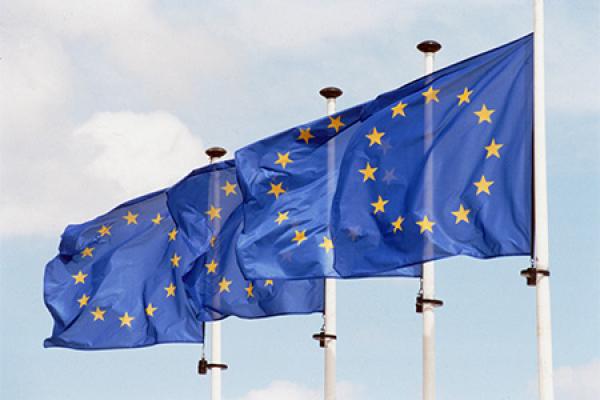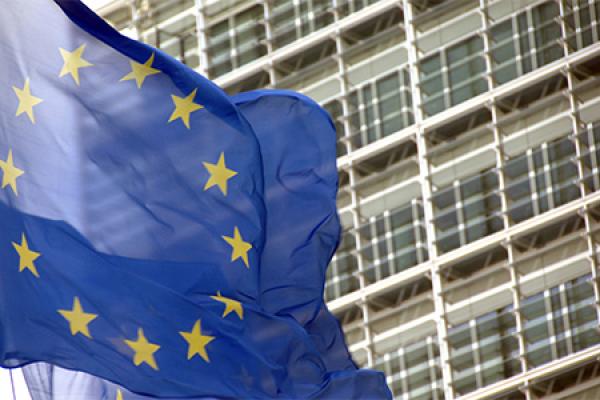C(2022) 5632 – Individual Measure in favour of Palestine for 2022-2024
C(2022)9734 – Annual Action Programme in favour of Palestine for 2022
- Annex I - Action Document for PEGASE2 Direct Financial Support to the Palestinian Authority 2022
- Annex II - Action Document for “Access to self-sufficient water services”
- Annex III - Action Document for “Greening the Palestinian Economy”
- Annex IV - Action Document for European Joint Support to Area C
- Annex V - Action Document for Support to Democratisation and Rule of Law
- Annex VI - Action Document for Support to Culture in Palestine
- ANNEX I - Direct Financial Support to Recurrent Expenditures of the Palestinian Authority 2021
- ANNEX II - EU Support to East Jerusalem
- ANNEX III - Promoting gender responsive policies and laws in Palestine
- ANNEX IV - Gas for Gaza
- ANNEX V - Fostering Sustainable Economic Development
- ANNEX VI - Access to self-sufficient water services
ENI 2016/C(2016)1359/Annual Action Programme for Palestine (Part 1)
- ENI 2016/038842/Palestine/PEGASE: Direct Financial Support
- ENI 2016/370281/Palestine/UNRWA: EU Contribution to the United Nations
ENI 2016/C(2016)8251/2016 Annual Action Programme for Palestine (Part 1)/Modification
ENI 2016/C(2016)4671/Annual Action Programme for Palestine (Part 2)
ENI 2015/C(2015)690/Annual Action Programme for Palestine (Part 1)
ENI 2015/C(2015)7928/Palestine/Annual Action Programme (Part 1)/Modification
ENI 2015/C(2015)5243/Annual Action Programme for Palestine (Part 2)
- ENI 2015/038315/Palestine/Support to Governance at Local and National levels
- ENI 2015/038311/Palestine/Support to the Private Sector in Gaza
- ENI 2015/038310/Palestine/Low Volume Sea Water Desalination Plant Phase II
- ENI 2015/038312/Palestine/Support to Jerusalem East
ENI 2015/C(2015)6147/Annual Action Programme for Palestine (Part 3)
ENI 2014/C(2014)5986/Annual Action Programme for Palestine
- ENI 2014/36901/Palestine/Governance Sector in Palestine
- ENI 2014/37138/Palestine/Investment and trade and for vocational training
- ENI 2014/30874/Palestine/Hebron Wastewater Treatment Plant (HWWTP)
- ENI 2014/32783/Palestine/Access to Public Infrastructure in Area C
- ENI 2014/034090/Palestine/Support to East Jerusalem
ENI 2014/C(2014)8215/Annual Action Programme for Palestine (Part 2)
ENPI 2012/C(2012)6283/Palestine SM Part 2 (for 2012)
- ENPI 2012/023776/Palestine/Land development
- ENPI/2012/023762/Palestine/Delivery of community services in East Jerusalem
- ENPI 2012/023779/Palestine/Natural Resources in Gaza
- ENPI 2012/023844/Palestine/Private Sector in the West bank and Gaza Strip
- ENPI 2012/288136/Palestine/UNRWA
- ENPI 2012/023774/Palestine/Governance
- ENPI 2012/023843/Palestine/PEGASE
ENPI 2011/C(2010)9321/Palestine SM Part I
ENPI 2011/C(2011)3026/Palestine SM Part II
ENPI 2011/C(2011)5915/Palestine SM Part III
- ENPI 2011/023128/Palestine/Delivery of Community Services in East Jerusalem
- ENPI 2011/023129/Palestine/Support to Private Sector and Capacity Building to institutions related to the Economy
- ENPI 2011/023130/Palestine/Financial Governance and State Building
- ENPI 2011/023131/Palestine/Security /Justice / Elections
- ENPI 2011/023132/Palestine/Water sanitation and reuse programme in the West Bank
- ENPI 2011/023987/Palestine/2nd tranche Contribution to UNRWA's 2011 Regular Budget
ENPI 2011/C(2011)9348/Palestine SM Part IV for the ENPI 2011 and 2012 Part I
ENPI 2010/C(2009)9958/Palestine SM Part I
ENPI 2010/C(2010)4744/Palestine SM Part II
- ENPI 2010/022475/Palestine/PEGASE PA Two-Year Plan for Statehood
- ENPI 2010/022474/Palestine/PEGASE Infrastructure
- ENPI 2010/022475/Palestine/PEGASE Private Sector Development
- ENPI 2010/022470/Palestine/PEGASE: Support for delivery of community services in East Jerusalem
- ENPI 2010/Palestine/UNRWA: Development Programmes
ENPI 2009/C(2008)8267/Palestine SM Part I
- ENPI 2009/Palestine/PEGASE: Support to Recurrent Expenditures of the PA
- ENPI 2009/Palestine/UNRWA: Support to the Organisational Development Plan
- ENPI 2009/020651/Palestine/UNRWA: Contribution to the 2009 Regular Budget
ENPI 2009/C(2009)9958/Palestine SM Part II
ENPI 2009/C(2009)9388/Palestine SM Part III
- ENPI 2009/021832/Palestine/PEGASE: Support to Delivery of Community Services in East Jerusalem
- ENPI 2009/021835/Palestine/Governance and Social Development
- ENPI 2009/021836/Palestine/PRDP-related Public Infrastructure Development
- ENPI 2009/021839/Palestine/Private Sector Reconstruction in Gaza Strip
- ENPI 2009/021969/Palestine/Quality Education Services in UNRWA
- ENPI 2009/021855/Palestine/EXACT
- ENPI 2009/Palestine/PEGASE Direct Financial Support
ENPI 2008/C(2008)1094/Palestine SM I
- ENPI 2008/020577/Palestine/PEGASE: Support to Recurrent Expenditures
- ENPI 2008/019777/Palestine/PEGASE: Institution Building
- ENPI 2008/019778/Palestine/PEGASE: PRDP-related Public Infrastructure Development
- ENPI 2008/019779/Palestine/PEGASE: Support to Community Services in East-Jerusalem
- ENPI 2008/019782/Palestine/UNRWA: Support to Reform the Special Hardship Case
- ENPI 2008/Palestine/UNRWA
ENPI 2008/C(2008)4261/Palestine SM II/PEGASE: Support to Recurrent Expenditures (Part 2)
ENPI 2008/C(2008)6478/Palestine SM Part III/PEGASE: Support to Recurrent Expenditures (Part 3)
ENPI 2007/C(2007)78/Palestine SM Part I/Contribution to the Temporary International Mechanism
ENPI 2007/C(2007)837/Palestine SM Part II
- ENPI 2007/018877/Palestine/Contribution to the Temporary International Mechanism – Windows 2 (Interim Emergency Relief Contribution) and 3 (Payment of social allowances)
- ENPI 2007/Palestine/Contribution to UNRWA Budget
- ENPI 2007/023920/Palestine/Palestine Refugees in Lebanon
- ENPI 2007/018879/Palestine/Support to Community Services in East-Jerusalem
ENPI 2007/C(2007)2319/Palestine SM Part III
ENPI 2007/C(2007)3071/Palestine SM Part IV/Additional contribution to TIM Windows 2 and 3
ENPI 2007/C(2007)3552/Palestine SM Part V/Additional contribution to TIM





